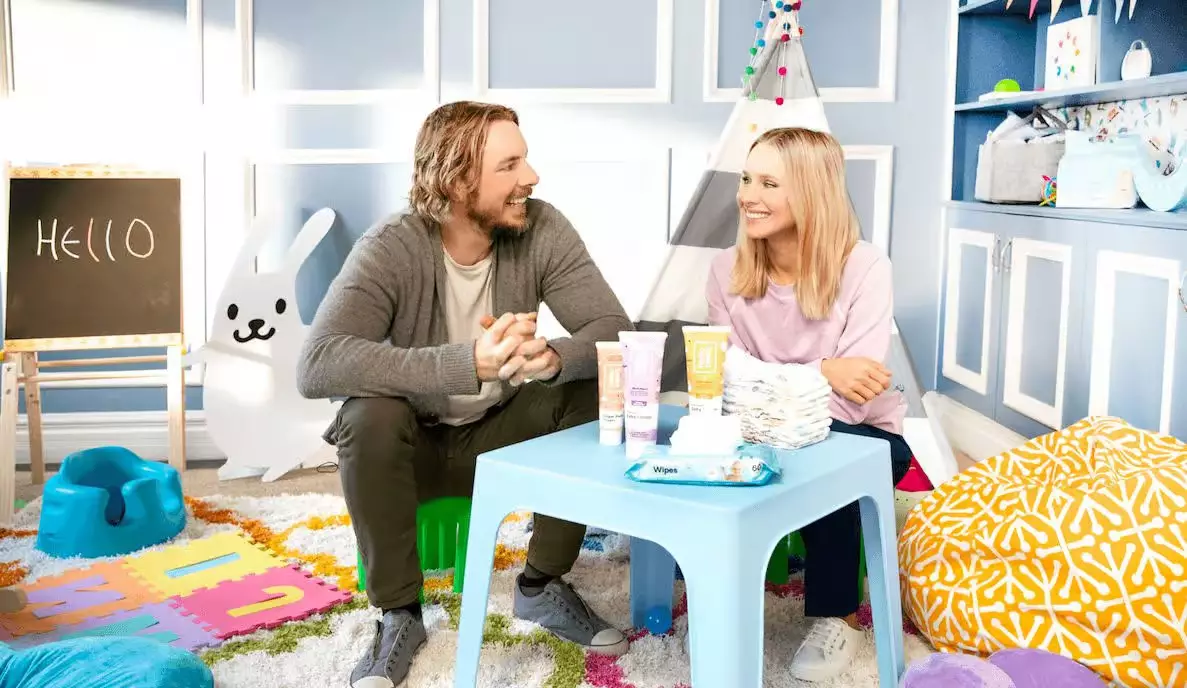Parenting often feels like navigating a labyrinth where every turn can lead to unexpected results. A glaring example of this is the journey of potty training, as illustrated by actress and mom Kristen Bell. On a recent podcast episode of *Momsplaining with Kristen Bell*, she openly shared her experiences with her two children, revealing that what works for one child may not necessarily apply to another. Bell’s reflections serve as a reminder that there isn’t a universal template for parenting – every child comes with their own distinct set of needs and behaviors.
With her five-year-old, Delta, still reliant on diapers, and her seven-year-old, Lincoln, having effortlessly transitioned to the toilet by 21 months, Bell shed light on a fascinating reality. The stark contrast in their potty training experiences made Bell and her husband, Dax Shepard, chuckle at their initial naivete. They had assumed that potty training was a simple process—just encourage them to use the toilet, and voilà! However, Delta’s different trajectory shattered that myth, underscoring the importance of tailoring approaches based on individual child development.
Understanding the Varieties of Potty Training
Alma Gottlieb, a notable anthropologist, echoes Bell’s insights. In her analysis published in *The Conversation*, she noted a significant decline in the number of children in the U.S. who are fully toilet-trained by age three. Interestingly, societal and cultural factors play pivotal roles in determining when a child is expected to master this milestone. In cultures where disposable diapers are scarce, children often become toilet-trained much earlier. This variation emphasizes the need for a broader understanding of what constitutes normal development.
Bell’s experience with her children showcases the reality that parenting is less about following a strict script and more about responding to each child’s unique rhythm. The idea that milestones must be reached at specific times can lead to unnecessary anxiety for both parents and children. It’s vital to recognize that just as children vary in personality and preferences, they also differ in developmental timelines.
Expert Insights on Potty Training Strategies
According to clinical psychologist Dr. Laura Markham, the journey of potty training involves recognizing that young children, such as Delta, can become deeply engrossed in their activities, leading them to overlook their bodily functions. This aspect of child psychology highlights a common hurdle in potty training—children may not comprehend the urgency of their needs amidst play. Dr. Markham advocates for a supportive approach where reminders to use the bathroom are integrated into daily routines, particularly around meal times or when they show signs of discomfort.
While such strategies are effective, the psychology of potty training should prioritize encouragement rather than criticism. Shaming a child or comparing them to their siblings can lead to negative associations with such an essential life skill. Rather than making it a battleground, the focus should shift to fostering a positive attitude towards bathroom use, which can significantly affect a child’s willingness to engage with this milestone.
A Culture of Acceptance and Understanding
The narrative surrounding childhood development, including potty training, needs to evolve into one that embraces flexibility and individuality. As exemplified by Kristen Bell’s reflections, there is immense value in recognizing that each child’s path is unique. Parents should feel liberated from societal pressures which dictate when and how achievements should occur. The conversation needs to shift towards accepting a multiplicity of experiences rather than fixing labels of “normal.”
Ultimately, parenting is an intricate dance of understanding and adapting. As Kristen Bell has highlighted, the experiences with her children show that varying approaches can enrich the parenting experience rather than complicate it. Celebrating differences and approaching each child’s journey with patience and encouragement can cultivate not only a smooth transition out of diapers but can also lay the foundation for a nurturing, supportive home environment.

